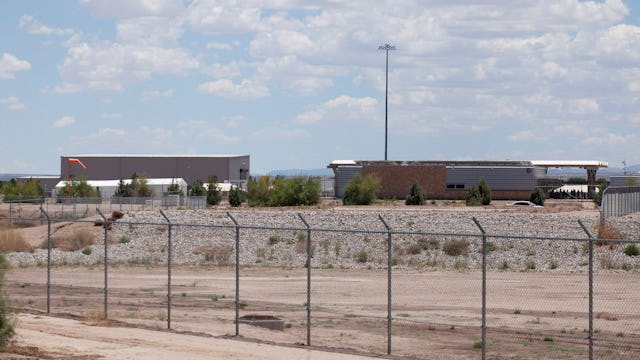15,000 Migrant Kids Are Now Being Held At U.S. Shelters, Which Are Almost Full

The U.S. has so many migrant children in custody, the shelters are nearly full
The federally contracted shelters for migrant children in the U.S. are nearly at capacity, with almost 15,000 kids in government custody. That’s 100 shelters full of migrant children who are being detained by the government. Children. Merry Christmas!
The Department of Health and Human Services has recently revealed the shelter network used to house migrant kids is currently 92 percent full, and more kids are still coming in than are being released. That’s, of course, due to a bunch of Trump administration policies that are pretty clearly designed to keep these kids behind bars.
NPR reports that most of the kids are unaccompanied boys from Central America who have come to the U.S. to apply for asylum to work or go to school. Numbers of such kids are increasing; in November, around 175 unaccompanied children (not just boys) crossed the border every day. A worker at Tornillo, the largest shelter for migrant children, told NPR anonymously that the shelter is taking in about twice as many kids each week as it can release.
“This is unsustainable,” the source said.
Typically, these kids wouldn’t be held in shelters longterm. The shelters tend to be bare-bones — Tornillo is described as “sand-colored tents set up on a patch of desert a few hundred yards from the Rio Grande.” It’s more like a detention center than a youth shelter, and not by any stretch of the imagination a healthy place for children to live longterm.
But the Trump administration has significantly slowed shelters’ abilities to release kids to relatives who are willing to sponsor them while they wait on their asylum cases, by implementing a policy that says everyone who lives in the sponsor’s house must be finger printed for a background check. Processing all those background checks takes time, so the average time a child is now held in a shelter is 50 days. The administration claims this policy is to ensure kids don’t go to dangerous situations, but for comparison, the guards at the shelters are not required to undergo a fingerprint background check.
Meanwhile, experts say the detention centers are harming migrant children.
Detention is never in the best interest of a child, especially when it’s extended,” said Jennifer Podkul, senior director for policy and advocacy at Kids In Need of Defense. “It’s bad for the child’s mental and physical health.”
As the shelters reach capacity, it’s unclear how the administration will act to provide housing for more kids. But we’re talking about the same administration who separated young kids from their families and put them in cages earlier this year, so we’re not optimistic it’ll be anything better for the kids.
Like we said, Merry Christmas.